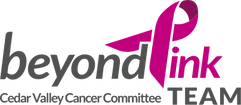ACCESS to care
|
A key element in advocacy is access to appropriate healthcare for all. There are several layers to the definition of access to care: person-driven, community-driven, state-driven, and federally-driven resources. There are obstacles that affect the quality of medical care within each layer that interfere with access to quality health care for all.
Access to medical care is the timely use of personal health services to achieve best outcomes. Health care insurance coverage facilitates entry into the healthcare system. Un- or under-insured people are less likely to receive medical care and more likely to have a poor health status. There are 4 key components to achieving access for all:
Beyond Pink TEAM agrees with the the National Breast Cancer Coalition's primary goal regarding ACCESS to appropriate health care: Improve access to quality breast cancer care for all women and men, from appropriate screening policies through diagnosis, treatment and care—particularly for the underserved and uninsured—through legislation and change in systems of delivery of health care. NBCC's priorities include:
Healthcare Disparities Access to care often varies based on race, ethnicity, socioeconomic status, age, sex, disability status, sexual orientation, gender identity, and residential location. According to the National Institutes of Health, health disparities have garnered an increasing amount of attention from physicians and health policy experts, as well as a renewed focus from federal health agencies. Differential access to medical care, treatment modalities, and disparate outcomes among various racial and ethnic groups has been validated in numerous studies. The antecedents of such differences involve such "drivers'' as cost and access to the healthcare system, primary care physicians, and preventive health services. In addition, the subtle role of bias in creating and/or exacerbating health disparities is well documented in the literature. For more information, visit the Agency for Healthcare Research and Quality (AHRQ) website. Community-driven resources are available to people living in the Greater Cedar Valley to ease burdens related to a breast cancer diagnosis. Additionally, the Ignite the Cancer Conversation team educates the community on recent research and advocates for greater healthcare access and research funding. NBCC trains us to be effective and professional research and public policy advocates. Much has already been achieved through the grassroots efforts of the Beyond Pink TEAM advocates. However, there is still much more that needs to be done! Resources: HealthyPeople.gov NBCC’s Framework for a Health Care System Guaranteeing Access to Quality Health Care for All |
